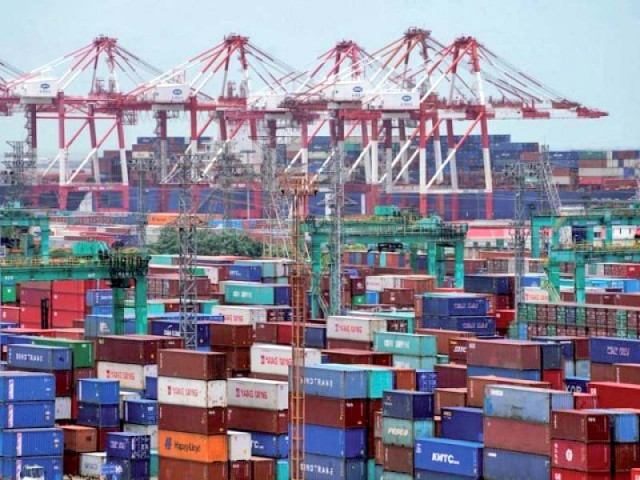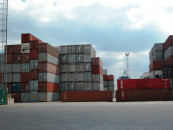PBC to promote Pakistan brands
Initiates work to build local export brands, establish warehouses abroad

PBC to promote Pakistan brands
“Global health crisis Covid-19 has provided an opportunity….to build ‘Made in Pakistan’ brands for export and establish footprints in overseas markets,” PBC CEO Ehsan Malik said while talking to The Express Tribune.
Hit by the Covid-19, foreign firms are selling brands and companies at significantly low prices in overseas markets these days. Pakistani companies have the potential to acquire them and re-establish them as made-in-Pakistan brands.
This would help the companies operating in Pakistan to fetch a much higher export value than the one they get through export of similar goods in unbranded, commodity and value-added forms.
“Increase in export earnings is the need of the hour as Covid-19 has hit Pakistan’s exports. We need to revive them, reduce trade deficit and better manage the balance of trade in our favour,” he said.
A Sri Lankan value-added textile firm fetched $50 per piece of women garments after it established its own brand and opened outlets at malls run by female salespersons in India.
Earlier, it was exporting the same garments at $2.5-3 per piece to a foreign brand, which was selling the product at $100 per piece in the US.
Some food and fast moving consumer goods (FMCG) companies have successfully established “Made in Pakistan” brands abroad.
Besides, there are many textile firms which have the potential to fetch much higher export earnings by transforming their value-added products into brands and marketing them abroad. Pakistan needs to make some changes in rules and regulations to support traders in exporting brands.
The PBC has submitted proposals to the authorities concerned to help Pakistan-based companies acquire assets in overseas markets, build and market brands abroad, and establish warehouses there. There is also a need to change regulations for subsidiaries for remitting annual profit to Pakistan.
The business advocacy forum, which is composed of Pakistan’s largest businesses and groups including multinationals, said the authorities should allow exporters to acquire prescribed tangible and intangible assets abroad to accelerate the growth of exports.
At present, the exporters are allowed to keep 10% of their export earnings and spend as they deem fit on market development. “However, if they wish to acquire capital assets (abroad) to strengthen and sustain their exports, they are required to seek prior permission from the State Bank of Pakistan (SBP) for investment of up to $5 million and the Economic Coordination Committee (ECC) for larger investment…whereas permissions take a long time,” the proposals read.
It submitted “no permission should be required from either the SBP or the ECC, if the sum to be invested in acquiring capital assets is fully funded from the accumulated market development retention balance available to the exporter.”
Where the intended overseas investment exceeds the accumulated balance available to the exporter in the retention account and the exporter has in the previous three years exported goods or services of at least $10 million per annum, prior permission would be required from SBP if the shortfall between the investment and the balance available to the exporter in the retention account does not exceed $5 million. Similarly, prior permission would be required from the ECC if the shortfall exceeds $5 million, it said.
Secondly, most of Pakistan’s exports sell commodities or goods to foreign brand owners who are able to charge premium prices. “It is desirable for exporters to develop brands,” it said
Exporters of strong brands willing to invest more than 10% of annual exports in brand building and sales development may be permitted to this within a framework which balances ambition with risks, it said.
Pakistani exporters may need more than the 10% of the retained export earnings to do brands for doing market research, supermarket listing fee, supermarket shelf rental costs, advertising and promotion costs, hiring a sales force and running an overseas office, warehousing and logistics expenses and product spoilage and bad debts.
Thirdly, exports are presently deemed to take place when goods are shipped from Pakistan. Export proceeds are required to be realised within the stipulated time period, failing which criminal action can be taken against the exporter and its owners/directors. “Holding of inventory abroad, pending sale, is not permitted (at present),” it said.
“Exporters should be allowed to ship goods either to their own warehousing facilities or to third parties to hold until sold to a customer,” it said Lastly, overseas subsidiaries of Pakistani companies are required to remit their entire annual profit to the parent company in Pakistan. Failure to do so risks criminal action against the owners of the parent company.
Published in The Express Tribune, June 9th, 2020.
Like Business on Facebook, follow @TribuneBiz on Twitter to stay informed and join in the conversation.



















COMMENTS
Comments are moderated and generally will be posted if they are on-topic and not abusive.
For more information, please see our Comments FAQ